James Archie Dowlearn
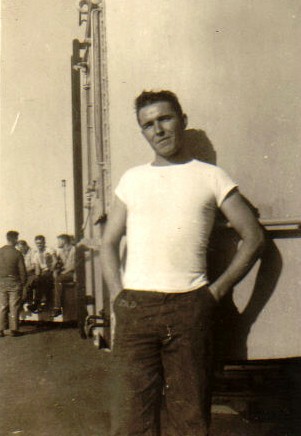
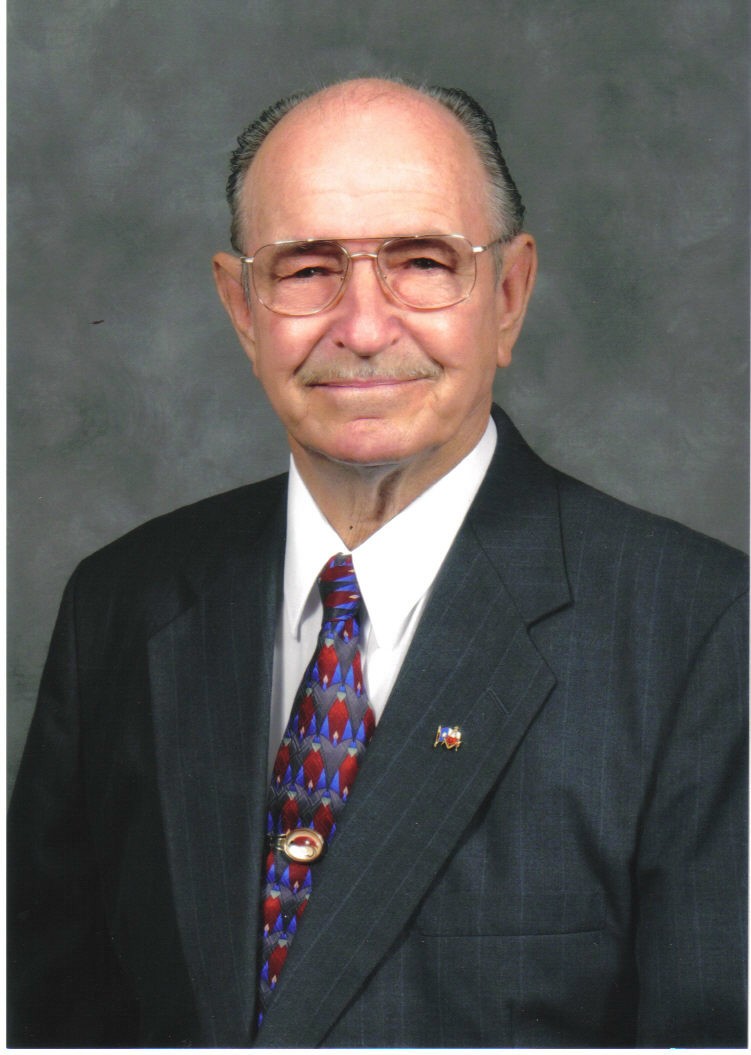
San Antonio, Texas
March 17, 2007
Lauren Lynne Littlefield
Palo Alto College
History 1302 - Spring 2007
INTRODUCTION
Born on September 4, 1931 in Weesatche, Texas, about four miles from Yorktown; James Archie Dowlearn Jr. was delivered in his own house. His mother, Marth Marie Stopke and father, James Archie Dowlearn Sr. owned a farm and ranch in Weesatche, which they inherited from his grandfather. He was the oldest of five children, his three sisters, Morjorie Catherine, Dorothy May, Evelyn, and youngest brother Russell. The house that James grew up in had no running water, no indoor plumbing and no electricty. He was a real 'country boy.' They would get their water from a water mill, and to cook, they used a wood burning stove, which was also used to warm the house in the fall and winter. Since their house had no electricity, candel and kerosene lamps provided light. While living on his grandfather's farm, James did what any typical farmer would do. Every morning at about 5 or 6 A.M., James and his siblings would get up and milk the cows and collect the morning gresh eggs and prepare breakfast. In Weesatche, the nearest grocery store was several miles away, and James' family didnt have much money to spare, so they would make their own cheese, cottage cheese, sour cream, jelly, wine, chicken, bacon and ham. Every year his family would raise over 100 turkeys and then take them to market to sale, and that's how they made their money. Once James finished eleventh grade at Summerset High School in 1950, he began working for a company that built chain length fences. He even took part in building one of the largest chain length fences, which surrounds the Lone Star brewery in downtown San Antonio. Later that same yearm he enlisted in the Navy, where he worked in the engine/ genator room onboard the USS Hanna, and also as a first loader, he handled a five- inch gun and fought in the Korean War. After four years in the Navy, he then went to work for City Public Service (CPS), in 1954 for 34 years, working and directing the power plants, where ht then retired in 1988. A few years after he got out of the Navy, James met his first wife Ellen Fuller. They had three children together, Kozet, Laura and James III. He divorced Ellen in 1977 and began dating Peggy Speer, in which he later married and has spent the last 29 years of his life with. James has many hobbies. He loves taking pictures, in which his collection exceedes 20,000 photos! He is also a major role in all of his 14 grandchildren and 4 great grandchildren's lives. James also partakes in the annual stock show and rodeo S.A.L.E., San Antonio Livestock Expedition, where he was named volunteer of the year in 2002, and still loves up to his honor. He is also a member of the Harlandale Masonic Lodge, a Shiner and a volunteer for St. Jude's Hospital, which take up most of his free time.
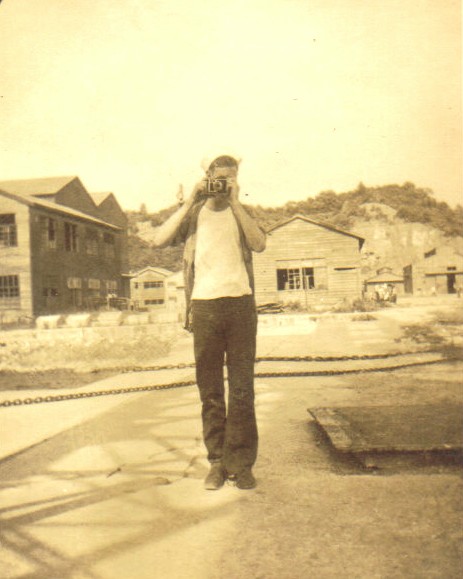
TRANSCRIPTION
How many family members resided in Weesatche, Texas?
My grandparents came from Czechoslovakia and Hungry, crossing the ocean landing on the Texas coast. They couldn't find any work along the coastal bend, so they moved to Weesatche and acquired several grocery stores. They traded the grocery store for a farm and land that was approximately 340 acres and that is where I was born.
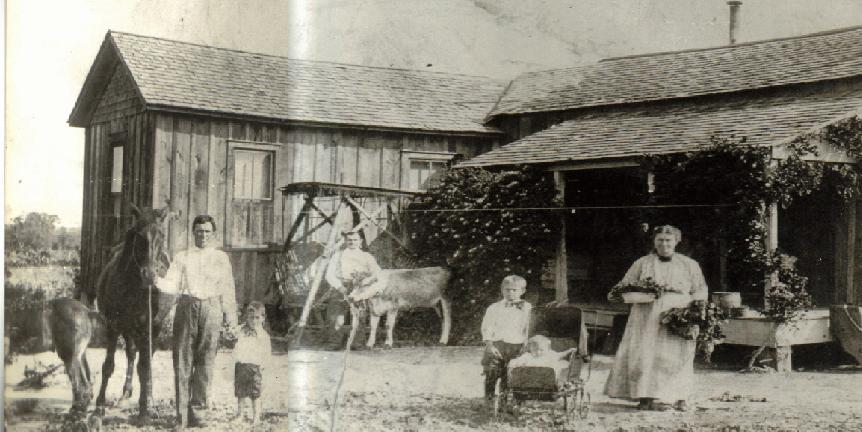 What did you do on the farm?
What did you do on the farm?
Well it was both a farm and a ranch type. 2/3's of the land was used for cattle and growing crops in the fields during the summer time and stored them for the wintertime's so we would have food to eat. We would sell some of our cows for extra money. A grown cow, we could get $10-$15, which we thought was a lot of money.
We would also take our eggs from our chickens that we raised take them to Piggly Wiggly, around 30 dozen in a crate for 6 or 7 cents a dozen. With that money we would buy sugar, salt, flour, coffee, stuff we did not have on the farm. We had our own bacon and ham, so we only bought the necessary items, which we did not raise ourselves.
I remember on Saturday when I was and 7 years old, grandma had a 1933 Plymouth and the bumper sat about 12 inches away from the body so we would go by the ice house after we traded in all of our eggs, and purchased the necessities and grandma would say "I gotta have a beer". She liked to drink a mug of beer. She would always wear her dress with roll up stockings. When we were homeward bound, she would roll down her stockings, daddy would get her a Shiner Beer, while she waited in the back seat, propping open both doors, hoping a breeze would blow through. Grandma would say this is the best damn beer I've ever had", laughing while sipping on that beer from Shiner Texas. She would drink about two beers then we would head further down the road to another ice house and get a big block of ice, because we know back in the early 1930's there we did not have electricity available, so we did not have refrigerators back then, just ice boxes. We'd buy a big block of ice and place in on our bumper, wrapped in a burlap sack and once we got home, we'd chip ice off the block so we could put it in our crank ice cream maker so we could have some made ice cream. We would turn the crank, make ice cream and eat a large bowl of ice cream, and this was our happy Saturday afternoon. We went shopping that morning and to town, returning home and where made and ate ice cream. We would get a brain freeze, all of us kids because we were so excited about eating ice cream. We couldn't afford much when I was growing up.
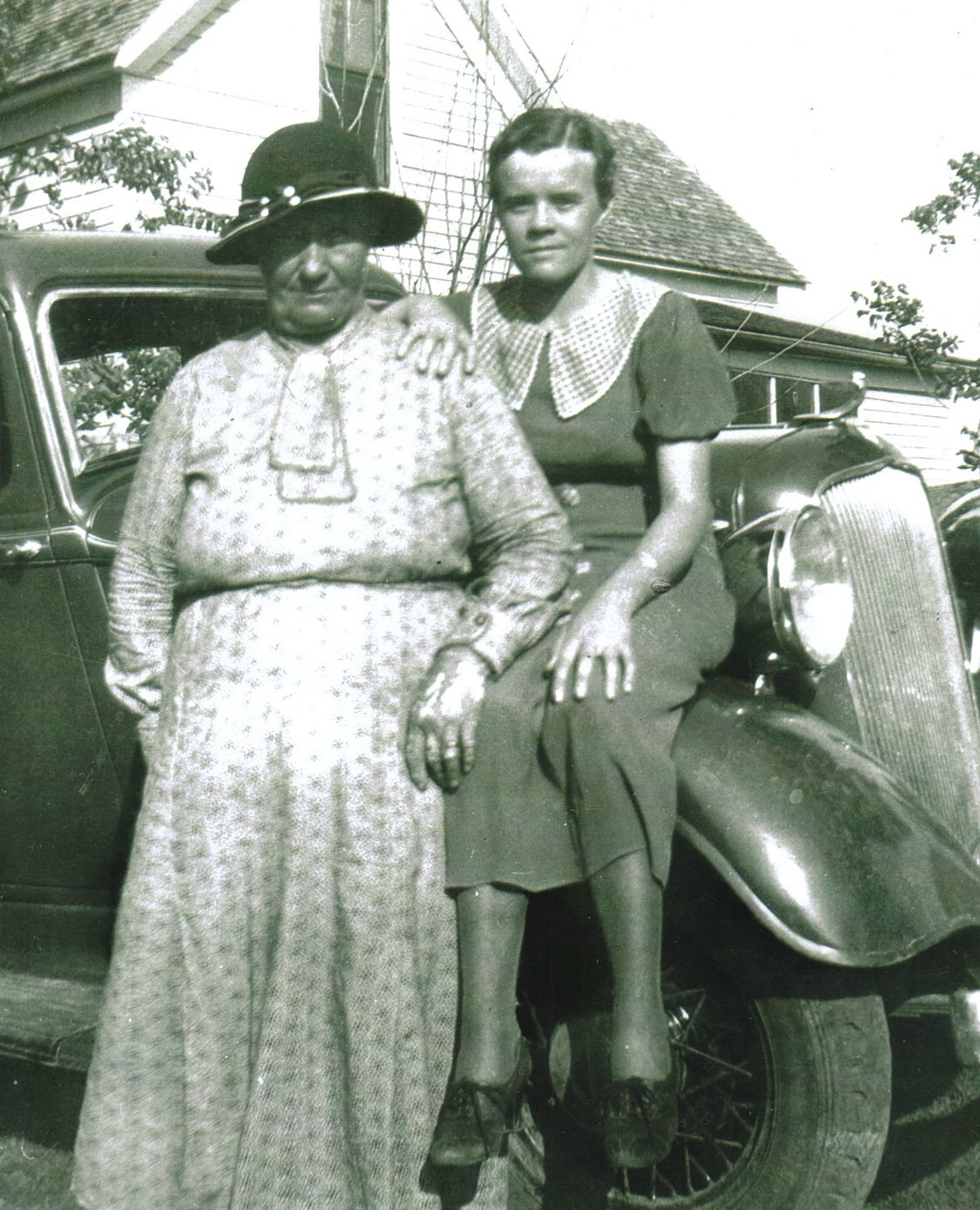 With no electricity or plumbing, what was it like growing up with your siblings?
With no electricity or plumbing, what was it like growing up with your siblings?
Well with the little kids, we had what was known as a slop jar, Also known as a Chamberpot, and you had a lid on it by the bed, so if you got up during the night, you would not tip it over. This was used to go to the restroom during the middle of the night. Then in the morning when your woke up, you would go way out back and dump it. This is the way we used the restroom during the night, because the outhouse was about fifty yards away from the house and this was too far too go at night. We did no have toilet paper, ever, because people back then didn't buy any. They would use their Sears and Roebuck catalog, tear out a page and this was our toilet paper.
What did you do for Fun?
Well since we couldn't afford much, we hardly ever went to the picture show. It cost about 7 cents for kids and 11 cents for adults, and there was also the cost for us to stay in town because the show was on late. Momma and daddy didn't want to do that. There was only one theatre in town. We did not have a common radio, we had one that you had to listen to with headphones call a Crystal Set. We finally were able to get one in the late 1930's, maybe even 1940, but it requires us to use batteries since we did not have electricity. We listened to the news in the morning, and at night we would listen to Gangbusters, Fibber and Molly and Amos and Andy, Mr. and Mrs. North or Inner Santum. That was really scary. We would close and latch the doors when we listened to intersantirum and we only had a kerosene lamp, which made it even scarier because there was no electricity, we could not light the house any more. We would know about the time the new Sears and Roebuck catalog was about the come out, so my brother, sister and me would get on our horse, ride to the mailbox, (about a mile away), and the get the new catalog once the mailman delivered it. We would run wide open on the way back because we were so excited, we could not wait to see what was inside the new catalog. We all wanted to look though it.
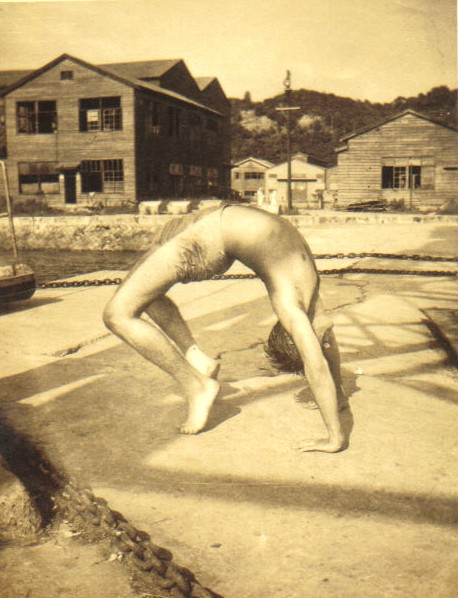
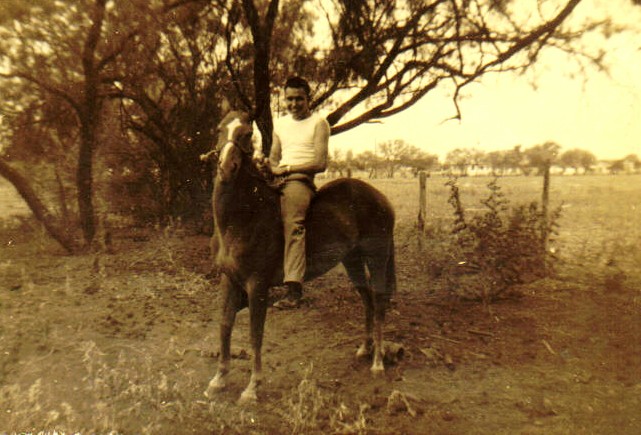
What schools did you attend? What was the highest level of education you received?
Believe it or not, I went to a school called Hinesville, really a very simple school, and two rooms. One light bulb hanging in each room and a big long black board. The first grade was on one row, second grade on the second row, third on the third row and so on. The in the second-class room was fifth grade, sixth, and seventh. If your parents wanted you to go to eight grade, your parents had to take you to Yorktown, which is about nine miles away. Usually when you finished seventh grade, that was like your graduation. Then you would stay home or got to work.
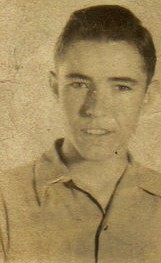 So did you just attend school through seventh grade? Or did you attend a higher level of education?
So did you just attend school through seventh grade? Or did you attend a higher level of education?
No, I went though to the eleventh grade and later got my GED. We moved and I started out in the first grade, when I was eight years old. I started school late because I had to wait until my sister was able to start first grade. There were not enough kids attending school, and there was a minimum of two kids for each grade before that grade of education would be taught. They did not want me to be the only kid in the class, so my mother made me wait until my sister Sissy was of age to attend first grade. We started school in the same room, same grade. Can you believe that? And we were still the only two in the first grade. Then there was about two or four other children in second, third, and fourth grade. One teacher taught all of us, her name was Miss Rosalie. I remember in April or May before school got out, my teacher told us to bring our lunch and our Big Chief tablets. You know the one with the red cover, big lines far apart and a big heavy leaded pencil to write with. So we would bring all that and we would all go down the road, the whole school would go together. Then the whole school was about twenty five kids and we would walk down the road and find us some cactus or bluebonnets or oak trees and we would all sit down, try to draw them and we would eat our lunch. That was our field trip for the whole year. Then about a week later school we would be out for the summer.
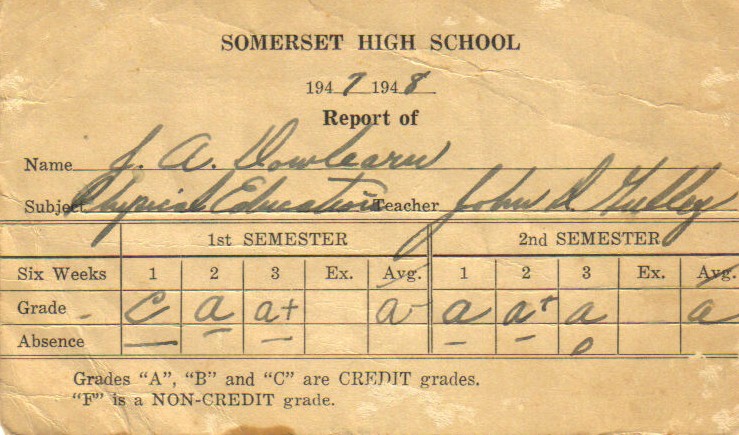 I remember I was chosen to be in the school play, and my daddy took me to down town Yorktown, and bought me a brand new pair of yellow corduroy pants. Yellow corduroy pants with suspenders! He bought them real big because I was going to have to wear them more than once and for several years after that. I also got new high top shoes, and a new shirt, don't remember what color though. But being my daddy picked it out, it had to match. He was really good at matching stuff. So like I was saying, I was the jack-in-the-box and the school first play and I was so excited that I got to participate in it. I remember I could hardly get out of the box because it was too small for me. But I made the best of it. Then we moved to San Antonio, and I went to South San High School. It was a three-story building and we didn't have much recreational things to do, so the school was equipped with a fire escape slide. We had a big slide, so after school we would get some wax paper and slide down that baby and land in the sand. We had so much fun doing that.
I remember I was chosen to be in the school play, and my daddy took me to down town Yorktown, and bought me a brand new pair of yellow corduroy pants. Yellow corduroy pants with suspenders! He bought them real big because I was going to have to wear them more than once and for several years after that. I also got new high top shoes, and a new shirt, don't remember what color though. But being my daddy picked it out, it had to match. He was really good at matching stuff. So like I was saying, I was the jack-in-the-box and the school first play and I was so excited that I got to participate in it. I remember I could hardly get out of the box because it was too small for me. But I made the best of it. Then we moved to San Antonio, and I went to South San High School. It was a three-story building and we didn't have much recreational things to do, so the school was equipped with a fire escape slide. We had a big slide, so after school we would get some wax paper and slide down that baby and land in the sand. We had so much fun doing that.
Did you work with your father or do any other type of jobs to make extra money?
Believe it of not, while we were living in one of my grandma's houses on the farm, whatever we grew, we would sell or trade. We were kind of like sharecroppers, whatever profit we made, grandma would get a portion of it since she bought the seeds and of course since she owned the farm. But we always grew our own veggies, so I didn't really need to work, we had it all right here. We had all we needed.
Would you like to add anything else?
Yes I would! But I dont know where to start. I remember the worst I ever got hurt in my life though. Well we grew peanuts, on a stalk, and we would pick the peanuts off there and give some to the turkeys and one time me and my sister Sissy got us both a quart jar and filled it with peanuts and we climbed up on the water cistern, where the windmill pumped water out of and I reached over and knocked over her peanuts. The turkey ate them. So she jumped off and found a rock about the size of a chicken's egg, and she threw if at me. Matter-of-fact, I still have the scar right here on my forehead from where she hit me. I'll never forget that. Just because I knocked her peanuts off and the turkey ate them.
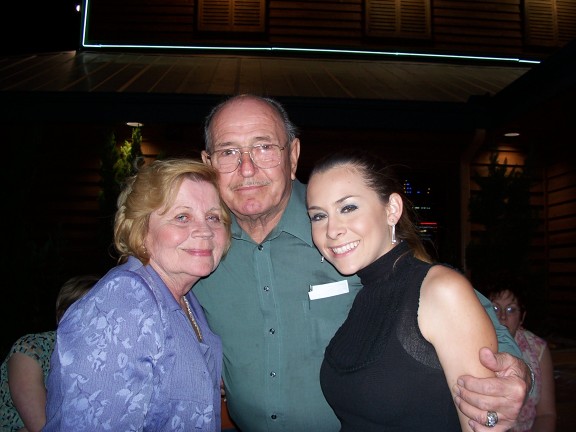
ANALYSIS
I learned about my grandfather, and how life was like growing up in Texas during the Great Depression. Some important points that he made was that they always made do with what they had. He gave his honest opinion and insight about everything he knew, and put great emotion in the story he was telling. Doing this interview was very beneficial, because he explained with great detail what he went through to get to where he is at today.
TIMELINE
- James Archie Dowlearn was born on September 4, 1931 in Weestache, Texas.
- 1939: attended Hinesville elementary school.
- Dropped out of Sommerset High School in 1950.
- 1950: enlisted in the Navy.
- 1954: Started working at City Public Service.
- Divorced his first wife Ellen in 1977
- 1878: Married his second wife Peggy Speer
- Retired from City Public Service (CPS) in 1988 after 34 years.
- 2002: named volunteer of the year for the S.A.L.E., San Antonio Livestock Expedition.
- Interviewed by Lauren Littlefield on March 17, 2007.
ANNOTATED BIBLIOGRAPHY
The Handbook of Texas Online
is a multidisciplinary encyclopedia of Texas history, geography, and culture sponsored by the
Texas State Historical Association and the General Libraries at UT-Austin. It was produced
in partnership with the College of Liberal Arts and the General Libraries at the University of
Texas at Austin. Copyright © The Texas State Historical Association. Last Updated: May 6, 2004.
City Public Service (CPS) CPS is the nation's largest municipally owned utility with both natural gas and electric service. Copyright © 2006 CPS Energy.
Shiner Beer As the oldest independent brewery in Texas, the Spoetzl Brewery has been brewing up Shiner beer since 1909. Tours are available in which patrons can sample a variety of our brews: Bock, Blonde, Hefeweizen, Dunkelweizen, Kölsch, or the brand new, Shiner Light. The Brewery is also open to the public for free tours. A virtual tour of the Brewery is also available. © 2005 Shiner Beer.
Crystal Set From Wikipedia, the free encyclopedia. The crystal radio receiver (also known as a crystal set) is a very simple kind of radio receiver. It needs no battery or power source except the power received from radio waves by a long outdoor wire antenna. Page last modified 25 March 2007. © 2007 Wikipedia.com.
Inner Santum Inner Sanctum Mysteries featured one of the most memorable and atmospheric openings in radio history: an organist hit a dissonant chord, a doorknob turned and the famous “creaking door” slowly began to open.
Big Chief tablets. The Big Chief tablet was for many years the most popular brand of paper writing tablet among school children. Copyright 2007, TechTarget.
Return to Oral History Project
Created on
March 28, 2007, Revised March 30, 2007











